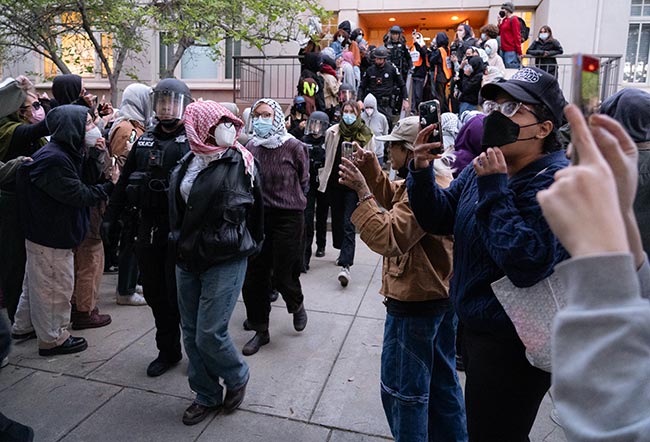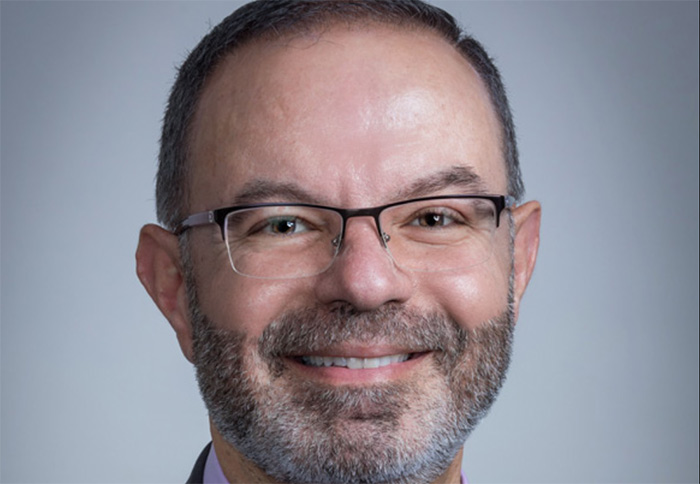Assemblyman discusses ethics, priorities, Trump at Sumner
Chris Holden, an assembly member representing California’s 41st Assembly District, is no longer on the campaign trail, having sealed the deal in November on third two-year term in state office.
He is, however, a man of his word.
This fall, Sumner Elementary School teacher Joe Tonan—seeking to educate his students about the political process—reached out to Mr. Holden as well as to his opponent
Mr. Higgins agreed, stopping by the school at the end of September to talk to Sumner fifth graders about his bid for office and the intricacies of state politics.
Mr. Holden said he was too busy for a visit at the time, but would give a presentation at the Claremont elementary school after things slowed down. He followed through on Thursday, December 1, taking to the mic in Sumner’s multi-purpose room.
He put his tall stature to good use while attending Pasadena High School, where he played basketball, helping the Bulldogs win two state championships. Mr. Holden was recruited out of high school to play basketball at San Diego State.
At age 23, he ran for the Pasadena City Council and lost. He ran four years later and this time won a seat. He would go on to serve nearly 23 years on the council, and served as the city’s mayor from 1997 to 1999. Mr. Holden also served as president of the Burbank Airport Authority for 20 years. In 2012, he was elected to the California State Assembly.
Along with his professional accomplishments, Mr. Holden noted that he is proud of his family, which includes his wife Melanie and five children. His daughter Mariah will graduate from New York University with a degree in journalism in 2017, he shared with a student who also happens to be named Mariah.
“You’re gonna do good things too,” he assured her.
Mr. Holden took a moment to describe how legislation is passed, going through the Assembly and the Senate before being passed onto the government for his consideration.
“If the government likes the bill, he signs it and it becomes law,” Mr. Holden explained. “If he doesn’t like it, he vetoes it—he essentially kills the bill.”
Mr. Holden’s favorite part of the job is during his breaks from the political session in Sacramento, when he is at home in his district, which encompasses most of the San Gabriel Mountains and various foothill communities.
Mr. Holden then opened the floor for questions prepared by the students. One asked what he would say to someone who insists he won his office only because he brought a lot of money to the campaign.
“This is my fourth election. I’ve had three other elections,” he said. “Each time, it’s been important to go out and meet my constituents—to let them know what my positions on the issues are. It’s really about relationships.”
He went on to describe how a politician like himself raises funds, through small donations like those collected by recent Presidential Candidate Bernie Sanders and a few larger ones.
“The worst part of my job and the hardest is raising money,” he said. “I don’t like it that much.”
Mr. Holden said he would love to see political campaigns move toward public financing, “and all I would have to do is focus on the issues.”
One student asked what Mr. Holden would do to improve the state. He says his focus includes environmental issues and education policy. He shared with the students a piece of legislation that recently passed and that he is proud to have sponsored.
AB 288 has paved the way for high school students to take community college classes—both academic and vocational—at the same time they are pursuing their high school curriculum. Thanks to this legislation, he told the students, it’s possible for a teen to graduation from high school with an associate’s degree or at least progress toward their college education, career training and a taste of what college life is like.
Another student asked the assemblyman if he has a personal hero. It would have to be his father, Mr. Holden said.
“My dad was in political life. He served as a state senator from 1974 to 1978, when I was in high school and college,” he shared. “He taught me how important it is to be a public servant. Your teachers are public servants. It’s a tough but rewarding job.”
Another kid had a question about political ethics: How do you protect yourself from people who ask for favors?
“You have to have integrity. It’s all about the issues—not about people asking us to vote a certain way,” Mr. Holden said.
His said his biggest concern is not the desires of special interests but the wants and needs of the people in his district.
“Just because someone contributes to your campaign doesn’t mean they control you,” Mr. Holden said. “It doesn’t mean you’ll vote their way. They should have no more access to you than someone who is not a donor.”
The final student question was another doozy, given Mr. Holden’s party affiliation. “Are you happy about the presidential election?”
“Let’s put it this way: No,” Mr. Holden laughed. “It’s like sports. You’ve got your team—soccer, basketball, whatever. You have the team you support and when your team doesn’t win, you’re a little sad. My team didn’t win and I’m a little sad.
Still, he said, we live in a democracy, which Mr. Holden feels is the best political system around.
“I’m okay with the outcome because it’s the way people decided to vote,” he said. “Let’s put it this way. I’ll get over it. I think it’s going to be alright. After your team doesn’t win, you have to pick yourself up and keep working.”
—Sarah Torribio
storribio@claremont-courier.com








0 Comments